In May I was invited to the 2013 FIDI conference in Athens. It was a privilege to be invited as, I suspect, the first independent journalist in the organisation’s 63-year history. My job, to give an objective view of the conference, its speakers, its social events and, as far as is possible from an outside position, what FIDI is doing for its members. By Steve Jordan
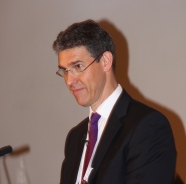
Photo: Rupert Morley, FIDI President, hosts the business meetings.
So, what did I think of my first FIDI conference for 27 years? Well, firstly I need to try to block out inevitable memories of my last attendance in 1986 at the Sydney convention. That was held in the sumptuous Regent Hotel in Sydney, I was young and thin, and the world was a different place.
Today we live in more modest times. The conference hotel was business like, the meeting room excellent, and the food plentiful and enjoyable if a little repetitive. It was, however, a very long way from Athens and seemed to be hidden down a residential back street (apparently quite a well-to-do one) which wouldn’t have filled the delegates with enthusiasm as they arrived. The rooms too, were reported as being a little basic, especially in the overflow hotel across the road however, as it appeared that few people spent any except essential time in their rooms, it shouldn’t have made much difference to them.
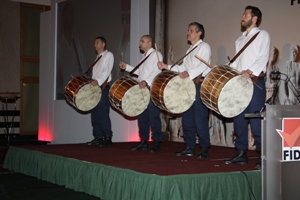 And the truth is that although we use these rather superficial ways to judge good from bad, actually they don’t matter much. The warmth of the welcome from the Greek and other Mediterranean FIDI members quickly warmed the coldest airport-worn heart and anyway, FIDI is a place to work: nobody was there for the food or a comfortable bed. Most importantly, the reception area was an ideal rendezvous place and not too large that delegates couldn’t find their contacts for the conveyor belt of meetings.
And the truth is that although we use these rather superficial ways to judge good from bad, actually they don’t matter much. The warmth of the welcome from the Greek and other Mediterranean FIDI members quickly warmed the coldest airport-worn heart and anyway, FIDI is a place to work: nobody was there for the food or a comfortable bed. Most importantly, the reception area was an ideal rendezvous place and not too large that delegates couldn’t find their contacts for the conveyor belt of meetings.
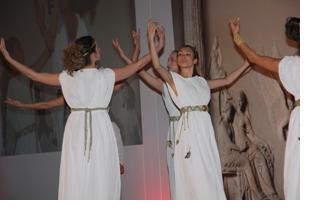 The social events were well attended – which is more than you could say for the business meetings, but more of that later – with a generous flow of everything essential to a good time. Notable indeed was the Mediterranean party night at a local restaurant courtesy of the Mediterranean members who worked very hard, successfully, to get and keep the party started. It was a cavernous place, but to accommodate such a big group it had to be, yet beautifully decorated and with a stunning sunset as the floor show to start the evening. When the Greek music struck up though it had the effect of driving people out of the back door and onto the dance floor in equal numbers. Those with hearing left on the early busses; the dancers (and the deaf) were reported to be still there at 4:00am. I never d
The social events were well attended – which is more than you could say for the business meetings, but more of that later – with a generous flow of everything essential to a good time. Notable indeed was the Mediterranean party night at a local restaurant courtesy of the Mediterranean members who worked very hard, successfully, to get and keep the party started. It was a cavernous place, but to accommodate such a big group it had to be, yet beautifully decorated and with a stunning sunset as the floor show to start the evening. When the Greek music struck up though it had the effect of driving people out of the back door and onto the dance floor in equal numbers. Those with hearing left on the early busses; the dancers (and the deaf) were reported to be still there at 4:00am. I never d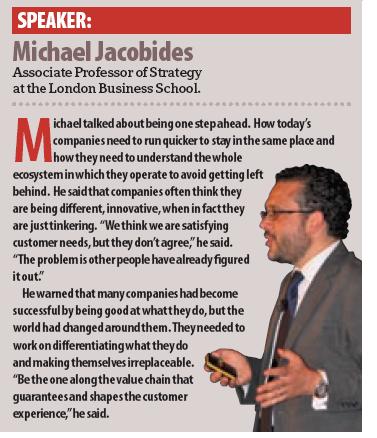 id understand why bands don’t have the ability to be loud enough to get the juices flowing without completely stopping conversation in those that do not have a love affair with the disco. Maybe I’m just getting old.
id understand why bands don’t have the ability to be loud enough to get the juices flowing without completely stopping conversation in those that do not have a love affair with the disco. Maybe I’m just getting old.
The business meetings were disappointing, not because of the presentations which were excellent, but because of the general lack of an audience. Considering there were 600 delegates, to struggle to get 100 in to see someone who is likely to provide sufficient food for thought to feed the heartiest strategic appetite (see panel) was not encouraging. One of the speakers, for example, Peter Economides, a brand strategist, had possibly the most resounding message of the conference: “People do not buy what you do, they buy why you do it”. The hundreds locked in interminable meetings, too busy to go to Peter’s presentation, were frantically selling what they do and wondering why nobody was paying them a proper price. If they had just invested one hour to listen to Peter they might have looked at things differently, changed their message, gone to the beach and made more money. Very sad.
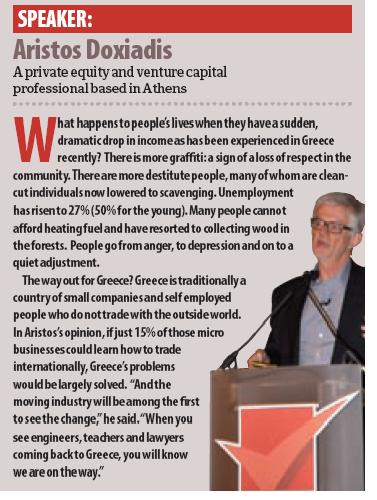
FIDI President Rupert Morley presided over the business meetings. Although Rupert did a good job I always think it’s a mistake for the boss to host his own show. It doesn’t reflect well on an organisation as prestigious as FIDI to have the president being quite that hands-on. A facilitator next time would add greater professionalism to the whole proceedings and release the president from what can be a difficult, terror-inducing role for some.
FIDI has recently launched its new FAIM Quality Standard 3.0. It is claimed to be easier, more efficient and cost-effective. I have no reason to believe that it is not all of those things but a key element of the new Standard is the removal of the minimum standards for financial security for other than new applicants. Instead, FIDI hopes that its Slow Payer procedures, that require companies to report invoices that have 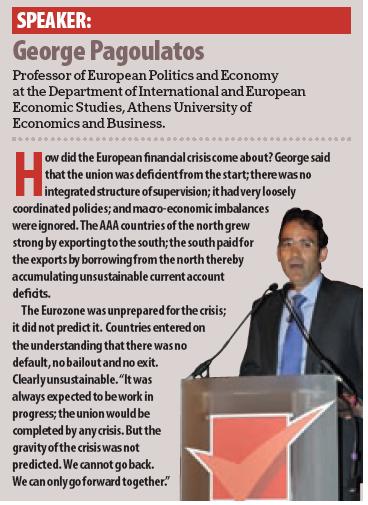 remained unpaid for 90-120 days or lose their entitlement for compensation under the PPP scheme if that company goes bust, will do the job instead. It says that relying on accounts which can be up to 18-months old is unreliable; using the Slow Payers list will give an early warning.
remained unpaid for 90-120 days or lose their entitlement for compensation under the PPP scheme if that company goes bust, will do the job instead. It says that relying on accounts which can be up to 18-months old is unreliable; using the Slow Payers list will give an early warning.
Well, I don’t quite get it. Companies that pay slowly are not necessarily, financially insecure. Some of the largest companies in the business take forever to pay their bills but they are not likely to go bust any time soon. Similarly, a company that pays quickly might be highly principled and broke. But the real reason I can’t see it working is that I don’t believe enough companies will report their best customers for slow payment; they will just call them and sort out the problem one-to-one. There is also the question of disputed invoices which might not be easy to identify. I know that nobody cares much 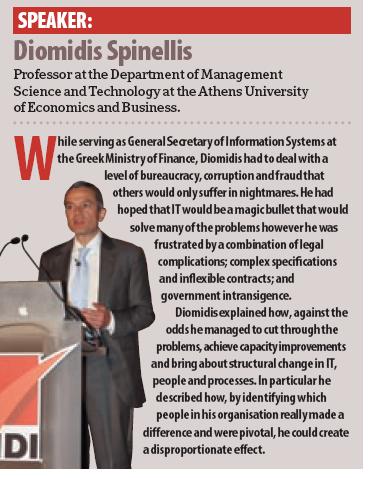 what I think but the chat in the bar suggests I’m not alone. I hope it works, but I doubt it will unless somehow FIDI manages to establish it as part of the culture of FIDI membership; if not, it might have to think again soon.
what I think but the chat in the bar suggests I’m not alone. I hope it works, but I doubt it will unless somehow FIDI manages to establish it as part of the culture of FIDI membership; if not, it might have to think again soon.
Errol Gardiner from New Zealand Van Lines has taken over as FIDI President. A different helm will undoubtedly steer the ship in his own way in the future and it will be interesting to see the changes he makes in the next two years (see page 30). In a milestone decision, FIDI has also elected its first female Board member in the shape of Ebru Demirel from Asya Nakliyat in Istanbul (see page 32). She is a woman of considerable talent and experience and will probably have the measure of that particular male-dominated environment in pretty short order. Could we be just a hop and a skip from the first female FIDI president?
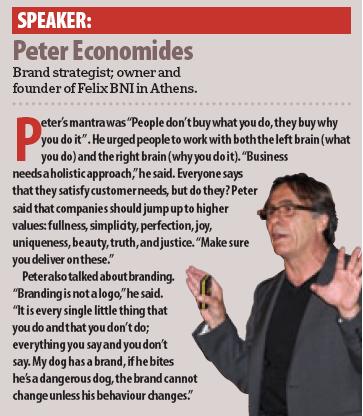
In conclusion, the FIDI conference in Athens was well run by the FIDI staff both in the approach and during the event. It was well attended, enjoyable throughout and, according to reports, profitable for those with business to exchange. It was also a most prolific networking opportunity for those with the energy – many were running on empty by the end. The FIDI Board wanted to achieve a quintessentially Greek conference and, with the Greek food, exclusively Greek speakers and enthusiastic support of the local members (they must have been exhausted) with their Greek entertainment right down to the carnation throwing, it was a success. It was a shame that more delegates could not drag themselves away from the cut and thrust of agent meetings to take a more active part in the plenary meetings. In that regard is the FIDI conference becoming so much like AIM as to be indistinguishable other than in size and location? I wonder.
Click here to read the next Editor's pick